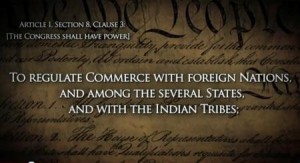 As The New World of Technology, led on the device side by Apple products, continues to replace the Old World of Technology, it has become harder for established technology experts to downplay the iPhone and iPad. In fact, while it was nearly “standard operating procedure” for technology experts to try to dismiss Apple’s products over the last few years, it now is starting to make them look like they have their heads buried in the sand. How else would you describe someone who continues to deny what seems so obvious to the rest of the world? Therefore it is not surprising to see more articles being written by Old World experts starting to begrudgingly accept Apple’s iOS platform (iPhone and iPad) as a major player in the marketplace. Still, it seems old habits are hard to break, as this article from Paul Thurrott shows.
As The New World of Technology, led on the device side by Apple products, continues to replace the Old World of Technology, it has become harder for established technology experts to downplay the iPhone and iPad. In fact, while it was nearly “standard operating procedure” for technology experts to try to dismiss Apple’s products over the last few years, it now is starting to make them look like they have their heads buried in the sand. How else would you describe someone who continues to deny what seems so obvious to the rest of the world? Therefore it is not surprising to see more articles being written by Old World experts starting to begrudgingly accept Apple’s iOS platform (iPhone and iPad) as a major player in the marketplace. Still, it seems old habits are hard to break, as this article from Paul Thurrott shows.
The article starts off showing that the author actually seems to get what the iPad has done to the technology industry. He understands that the new iPad is going to present a tricky problem for the upcoming Windows 8 and associated hardware manufacturers. And then he does something almost unheard of – he actually acknowledges that he was wrong about downplaying the iPad 2 years ago. He makes a point about how the iPad is all the computer most people need and better than any PC for them. However, even when doing this, he claims that NO ONE saw this coming. “No one credible anyway,” in his own words. Seriously? So instead of simply acknowledging that he was wrong, he has to pretend that it was impossible to foresee the success of the iPad and so dismisses anyone who did predict this.
At this point, let me stray off-topic for just moment – hey Paul, from me to you personally, you can suck it and your definition of credibility – OK, I’m better now.
The majority of the rest of the article goes in depth about technical details of high resolution display technology, how Microsoft and PC hardware vendors have bungled this technology, and how the new iPad’s Retina Display is a huge win for Apple at this time. I won’t bore you with those details, other than to say that the content of this article is for the most part dealing with how superior the iPad is at this time. Which then makes his finish to the article all the more surprising.
He starts to give some arguments about how devices that will run the upcoming Windows 8 operating system will be more versatile than the iPad, and lists off several technical features that potentially could be possible, such as docking stations and ports. In effect he lists features that are commonly associated with laptops. Additionally he states, “all of these machines can run powerful desktop applications, not just the Playskool stuff we see on iPads …” He then quickly asserts that businesses will prefer Windows 8 by a wide margin, just like they prefer Windows over Macs today for the claimed reasons of versatility, manageability, and IT administrator familiarity. To quote him, “Windows 8 will destroy the iPad in the enterprise. There won’t be any contest at all.” He then finishes his article by stating that Windows 8 will earn its spot at the table with iPads, reiterating an earlier comment that he believes the future of computing will be a split between Windows, Android, and Apple.
It’s pretty easy to see what he’s doing here. He can no longer keep his head in the sand about the New World of Technology, but he also doesn’t want to admit that the Old World is ending and alienate himself from his audience of Old World professionals. He flip-flops between the superiority of the iPad, his claim that Windows 8 will be better – at least for business, and then weakly predicts that the future will be a mix of various technologies. That’s understandable as he has made his living writing about Old World technology. But is he really doing anyone any favors? Mr. Thurrot is making the same mistake many Old World thinkers do when looking at the near future of technology. They still think that the market is going to be driven by the “techies” who care about such things as number of ports, gigahertz, and other esoteric technology features. They also still think business technology is going to be driven by a top-down mentality where the IT departments make the standards and forces them down to the end-users.
No, one of the hallmarks of the New World of Technology is that of simplification and ease-of-use. iPhones and iPads are not hugely successful because they have a multitude of ports or are marketed on things like gigahertz and how much they “kick ass”. In fact, many will argue it is the lack of such complexities as one of the driving factors behind their success. Apple’s devices are world-changing because they simply empower their users, not confound them with technology mumbo-jumbo. That is the secret to Apple’s success and everyone else is just trying to superficially copy Apple’s hardware and software look-and-feel. To quote Yoda, “that is why you fail”.
Because Apple has successfully conquered the consumer market, the other concept that most Old Worlders miss is that of bottom-up or grassroots technology in the business world. No longer are the words of the IT department being taken as gospel. On the contrary, employees are demanding their companies support their technology of choice, which is most often Apple devices such as the iPhone and iPad. It was one thing when it was a single user here or there with a Macintosh computer as was the case in the past. IT departments could largely ignore Mac users. But the mass of people who own iPhones and iPads (and increasingly Macs!) are overwhelming IT departments. Especially when many of those users are high-level executives! To highlight this fact, a term has been coined, Bring Your Own Device, to describe this growing trend.
Plus, I must wonder how well the author has explored the multitude of business applications available for the iOS platform. In making his “Playskool” comment, he clearly shows that he doesn’t understand how many businesses have leveraged Apple’s devices to massively increase their productivity. When one of the largest companies in the world, General Electric, is making extensive us of the iOS platform, I think that gives some credibility to its usefulness in a business environment. Wouldn’t you agree, Mr. Thurrot, great guru of all that is credible? Business technology is about a lot more than Microsoft Office and it might help to realize that.
Many Old World thinkers like to put the business and the consumer markets into their own little bubbles, pretending that they are completely separate and there is little relation to the two. Perhaps in the Old World this was true in practice, but the New World of Technology is changing the industry across the board. It is a simple as this: in the New World of Technology, consumers feel empowered to make their own technology decisions and they are taking this empowerment to the workplace. If IT professionals don’t train themselves in New World technologies, they will be replaced by those that do.
Maybe the future of technology won’t be dominated by Apple, but I know what it certainly will be dominated by – New World thinking. As long as Apple is the only personal computer company that is creating products grounded in the rules of the New World of Technology, it will be the only personal computer company to flourish. No, Apple’s technology won’t kill all other technologies, just like Microsoft (as much as it tried) didn’t kill all their competitors, but only Apple is setting the expectation for the way future technologies should work. Any technologies that do not conform to the ease of use, reliability, and empowerment that Apple has set the standard for will quickly be dismissed as the Old World technologies they are.
Old Worlders, let me put you on notice: the time of being wishy-washy is over. Man up and acknowledge that there is a bigger world than ports and gigahertz or fade away with the Old World technologies that you so dearly cling to.








